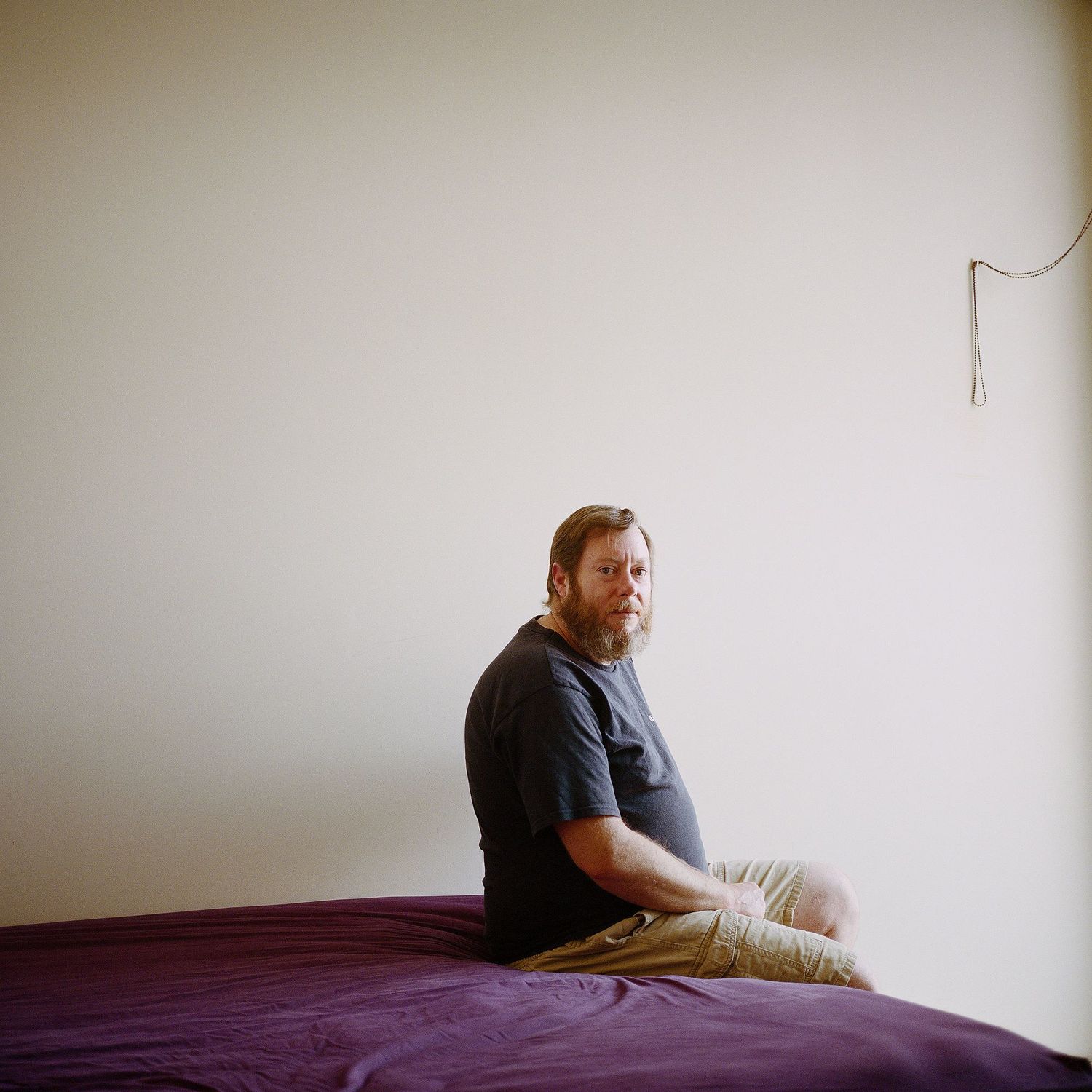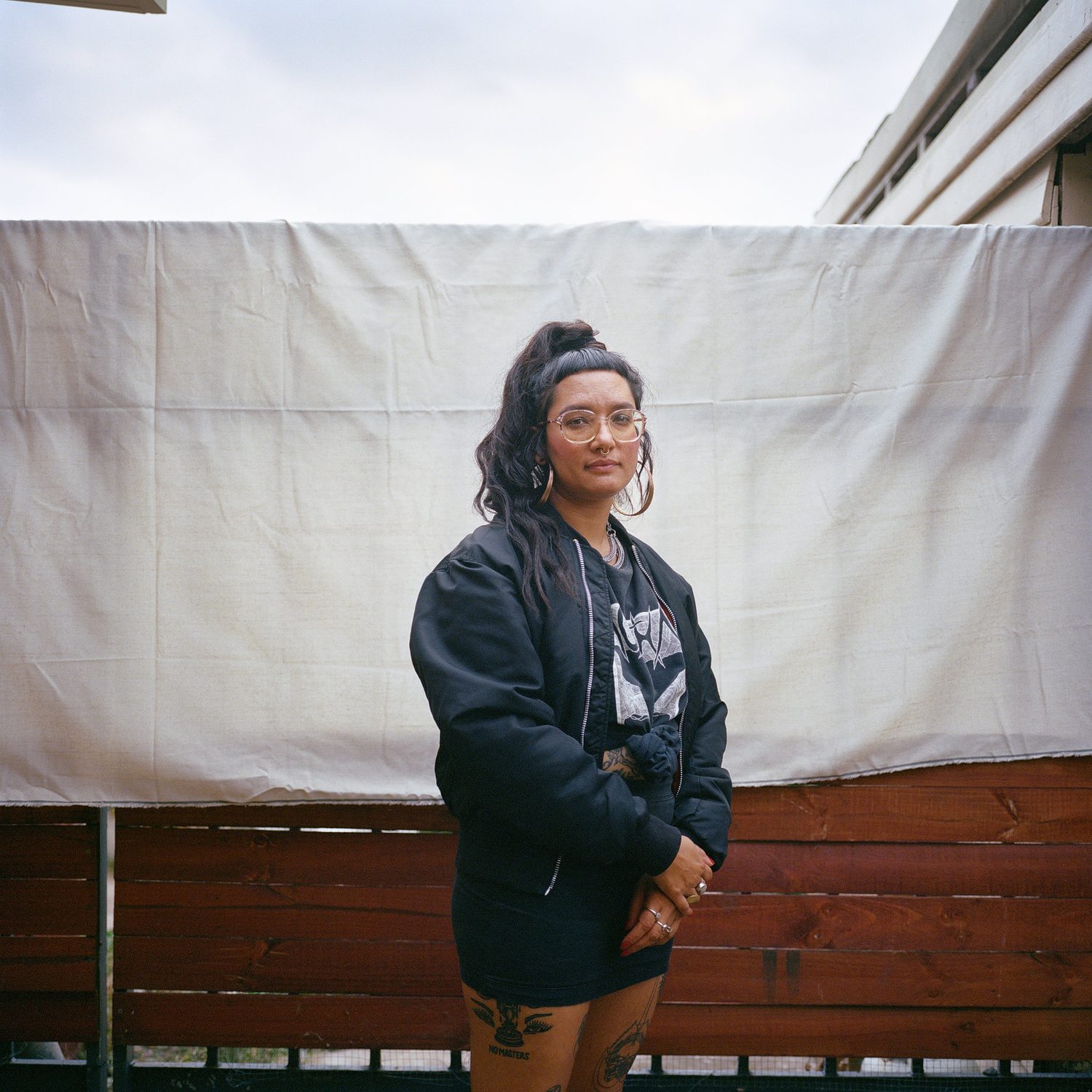For me this series is fundamentally about my own interpersonal connections. My aim is not to try to document anything or to try to give a platform to anyone. These photographs are a result of myself making time to meet and to spend time with someone I know. Someone close, or sometimes someone more new or perhaps peripheral in my life — the photography is just a reason to connect.
Sometimes I meet with someone I don’t know that well, and sometimes I meet to re-connect with someone close I haven’t seen in a long time. We talk a lot about a great many things, and often about the photographic process itself.
I find the processes around justifying artwork odd and alienating, and the written space that often accompanies a photographic work has never felt like mine to fill, so each work has something written by the person being photographed.
— Tristan Still
Serwah: “Black women are taught that we have to work 10 times harder than everyone else just to survive. And because of that I’ve had to adapt, learn and be so many things just to exist. It’s a blessing and a curse. But I can confidently say I am at peace with myself and the strength that’s grown in me. I forgive the world, but I will never forget.”
Serwah Gyekyewah Attafuah is an Ashanti/Fante woman currently living on Gadigal land. She drives a staunch anti-colonial message through her art and music by championing marginalised voices and narratives. She works alongside several First Nations, black and LGBTQI+ groups and organisations. Creating digital wastelands and afro futuristic reflections of self through 3D art and paintings with strong ancestral themes. She currently does vocals for punk band NASHO and a hardcore techno group MANA, guitars for death metal band DISPOSSESSED.

Simon: “All I want is a patch of the Earth to call home, somewhere I can do whatever, without restrictions.”
Simon has two twists in his spine due to severe scoliosis. Scoliosis, an abnormal curvature of the spine, has no cure but can be treated when diagnosed at an early age. Whilst young girls in Australia are checked at school for signs of the disorder, boys are not usually checked and Simon was not diagnosed until adulthood. Compensating for his affected spine, his body naturally refined the muscles on his front, helping reduce the severity of his chronic back problems.

Tulli: “My name is Tulli Mattes, and I am a pensioner from Camperdown. I love cats, and music, and cigarettes, and design.”

Raynen: “Surreptitiously, I walk hallways to each room, I close doors achingly, in a backwards manner becoming apparition.
“So many of us are encouraged to ‘write ourselves in’, lest we not exist. These days, I’m increasingly returning to moments of holding and witnessing myself, within the realms of the ‘unsaid’, the ‘unseen’, or the ‘unimaginable’. In the privacy of this exchange with myself that does not warrant hearing to be valued, I make some return to not being ‘fully known’.
“My hope is, that when we can value those amongst us — as not only being predicated on their story— we might exercise the humanising of each other, without reason.”

Fernanda: “I was going to be named Macarena, but I was born dark skinned. Dad didn’t like that, but it’s his fault mum says. So she named me after him.
“I’m a First Nations world-inhabitant. Yeah Dad’s blood runs thick with quanta, still Mum’s half but her Nation is stronger. The people in charge thought they were right when they smacked language out of her 6 year old mouth. But we learning it now, to speak and laugh and love from inside of it. Mum carries the world in this way, clutching between survival and when moments allow – curiosity. I hope to too.”
Fernanda is a proud Mapuche woman and also a descendent of the Diaguita-Calchaqui nation. She was born in Santiago de Chile and raised in south west Sydney.

Damian: “My body is beaten and tired, my mind is sharp and fragile.
“At this point in life I feel that I have already lived three or more life times of pain and trauma. But do these events and experiences define me as a person? For periods of time in my life they have consumed me.
“When I came out the other side, you want desperately for the events to not define you in the eyes of others. This is difficult for the ones close and familiar to you. And the irony is that the ones nearest and dearest will always consciously or otherwise define you to some extent by these happenings, but complete strangers see you simply as you are.”

Yumi: “I grew up with 2 cultures, 2 languages, 2 religions. I learnt to observe everything at a very young age. I became attuned to cultural intricacies. I knew how to read a room and ways of becoming invisible. But my race would always be the thing that would get in the way. Growing up in a predominantly white, Anglo-Saxon, Christian, English speaking country with another race running through your veins will do that to you.
“I have a daughter and a son. I’m trying to relearn what it is to be mixed race. How do I free my cultural guard? I want them to feel equal of both their culture, race and languages. I want to know what that feels like.”
私は二つの文化、二つの言葉、二つの宗教で育ちました。小さい頃から周りを事細かく観察していました。文化の違いに対して敏感で、その場の雰囲気をいち早く察してなるべく自分が周りから目立たないように振る舞いました。しかし人種の違いがいつもそれを邪魔しました。白人の、アングロサクソン人の、キリスト教の、そして英語を話すこの国で育った私がそういう行動を取るようになったのはとても自然な事かもしれません。
私には娘と息子がいます。今私は二つの人種を持つ意味を改めて理解しようとしています。 どうすれば文化的なコンプレックスから自由になれるのか? 私の子供たちには両方の文化、人種、言葉を平等にそして自由に感じてもらいたいです。 私もそれがどういう事なのかを知りたいです。

Lauren: “In the last year and a half my life has changed pretty drastically. That’s fine, albeit sometimes jarring. Not the biggest fan of unnecessary nostalgia anyway, it’s why I stopped photographing, though I still work as an archivist. I think I’ve finally thrown away my last expectations of ever fully arriving at somewhere or something. It’s a comforting feeling, that there’s no arrival. Even something put into preservation stasis will immediately change significance and meaning as it hits the air again.”
Lauren is of Koori and Japanese ancestry, living and working currently on Gadigal country.

Anne-lise: “At the moment even though I’m still working on all the transformative justice projects I do, I’m actually just deeply sad. My dad is dying and he was the person who taught me about injustice. He is so accepting of death, but it just feels gut wrenching. My interest in prison abolition and policing comes from him. I often wonder why it is that nearly all the projects and things I work on are about violence, and really some of it must come from my dad’s Creole ancestry, who were slaves. Immense compassion and resistance have been passed throughout that whole family. I’m going to miss him, his eccentricities and most of all his love.”
Anne-lise Ah-fat lives on stolen Wurundjeri land and was born in Mauritius from slaves and also slave owners. She draws her ACAB sensibilities from her Creole and Chinese roots which taught her to ‘not believe the hype’.


